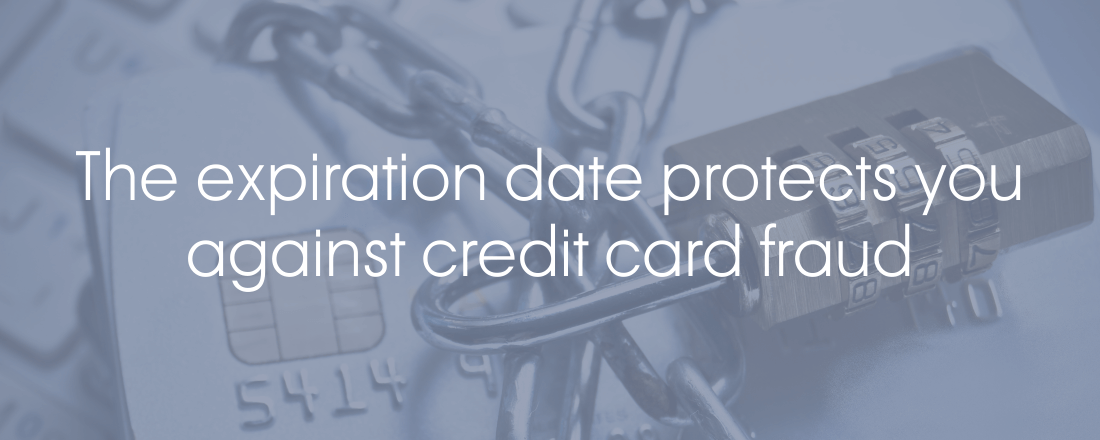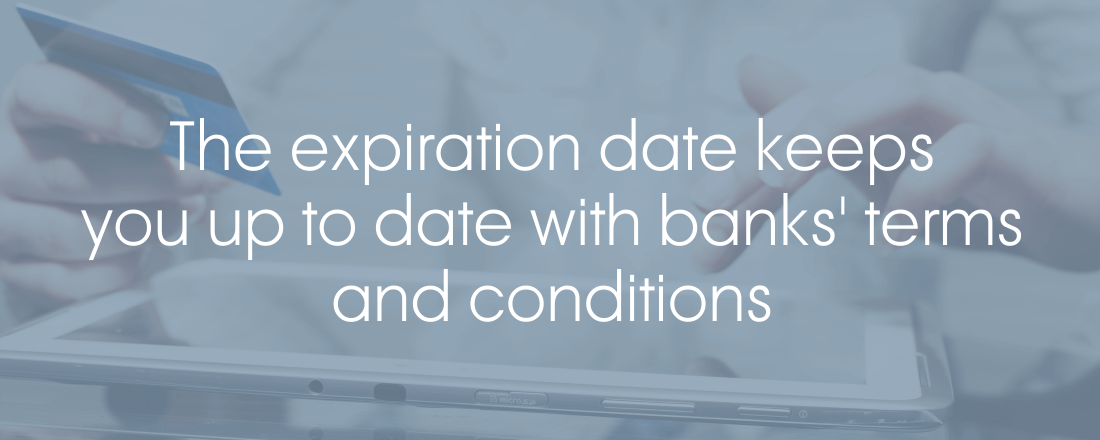
You may know a lot about the rewards and benefits that are included with your credit card, but you may not have considered those all-important four digits on the front of your card: the expiration date. It’s almost impossible to complete an online purchase without that data point, but what is the expiration date really used for? Banks have several reasons for including it. Read on to find out more.
Fraud Protection
Although there are multiple reasons why credit cards expire, one of the main ones is to protect against fraud. Major payment networks such as MasterCard and
Every time your card is swiped, its information is sent through a security system which will evaluate the card’s legitimacy. Aside from the card number and security code, the expiration date is one of the only other factors that are reviewed.
Banks and credit card issuers know that identity thieves are able to steal credit card numbers with ease, but have a much harder time obtaining the expiration dates on those cards. The use of an expiration date is similar to the need to provide a security code when online shopping or your zip code when buying gas. It’s another way for credit issuers to protect your account as well as your identity.
Aside from serving as an additional level of security, expiration dates can protect against fraud by making unused credit cards inactive. By deactivating your card, credit issuers can avoid the fraudulent use of ill-gotten credit cards that may have been lost and/or forgotten about.
Credit Card Lifespan
Even if you still have that card in your wallet, credit can take a beating. Living in our wallets and handbags, our credit cards are constantly being scratched and tossed around, and as a result of this, they can sometimes end up becoming unreadable.
Credit cards can generally be used without a problem when shopping online. As long as you have the card in front of you, all you need to do is type in your card number, name, expiration date, and security code and you can usually complete your purchase. But when you go out to shop in a brick-and-mortar store, your credit card will need to be swiped or your cards chip will need to be inserted to complete your transaction.
This scenario might have happened to you: you’re out with friends and you pick up the tab and give the waiter your credit card. But he comes back to the table to tell you the machine can’t read it. If your card’s magnetic data strip stops working, you will probably need to either use a different card or withdraw money from the bank. In some cases, a cashier may be able to enter your card’s information manually, but this is rare.
By making your card expire, your bank requires you to switch out your current card for their newer one, which will provide you with a brand new magnetic data strip before your old one stops reading.
Branding and Marketing
Another reason why banks benefit from the expiration dates on your card is because it allows them to promote their brand by providing you with their newest flashiest credit card that may either have a new logo, a new name or even an updated color scheme.
One thing to always keep in mind is that marketing is everything to these large companies and every time you publicly display a specific bank’s credit card, you are not only promoting their brand, but you are representing that bank. By making you update your card every few years, the banks can almost always guarantee that they are being represented with their most up to date image.
Change Conditions/Keep You up to Date
Like any large company, banks and other financial institutions are constantly changing and updating their policies. By providing credit cards with expiration dates, banks and other credit issuers can provide themselves with a chance to review your account before deciding to give you a new card.
There are a lot of situations where a certain credit company may either come under new ownership or simply decide to change its policies and certain programs associated with their cards will no longer be available. When you attempt to renew your card after expires, your credit issuer will have a chance to provide you with the current terms and conditions associated with your card.
When your card expires, many companies will take the time to review your spending habits as well as your payment history and may or may not decide to adjust your credit line based on that information, before choosing to re-issue your credit card.
In Conclusion
Although expiration dates may seem like something that is negative, most banks and credit issuers truly want good, responsible credit card users to remain customers. Many people will apply for credit cards, but only some of those people will continue to use the card long term. An expiration date allows credit issuers to simplify the process of managing who should and shouldn’t have their credit cards.
When a credit card’s expiration date comes, banks and credit issuers give themselves the opportunity to close the accounts of anyone who no longer needs or uses it, manage accounts with outdated balances and provide their existing account holders with the newest cards and most up to date terms and conditions.








